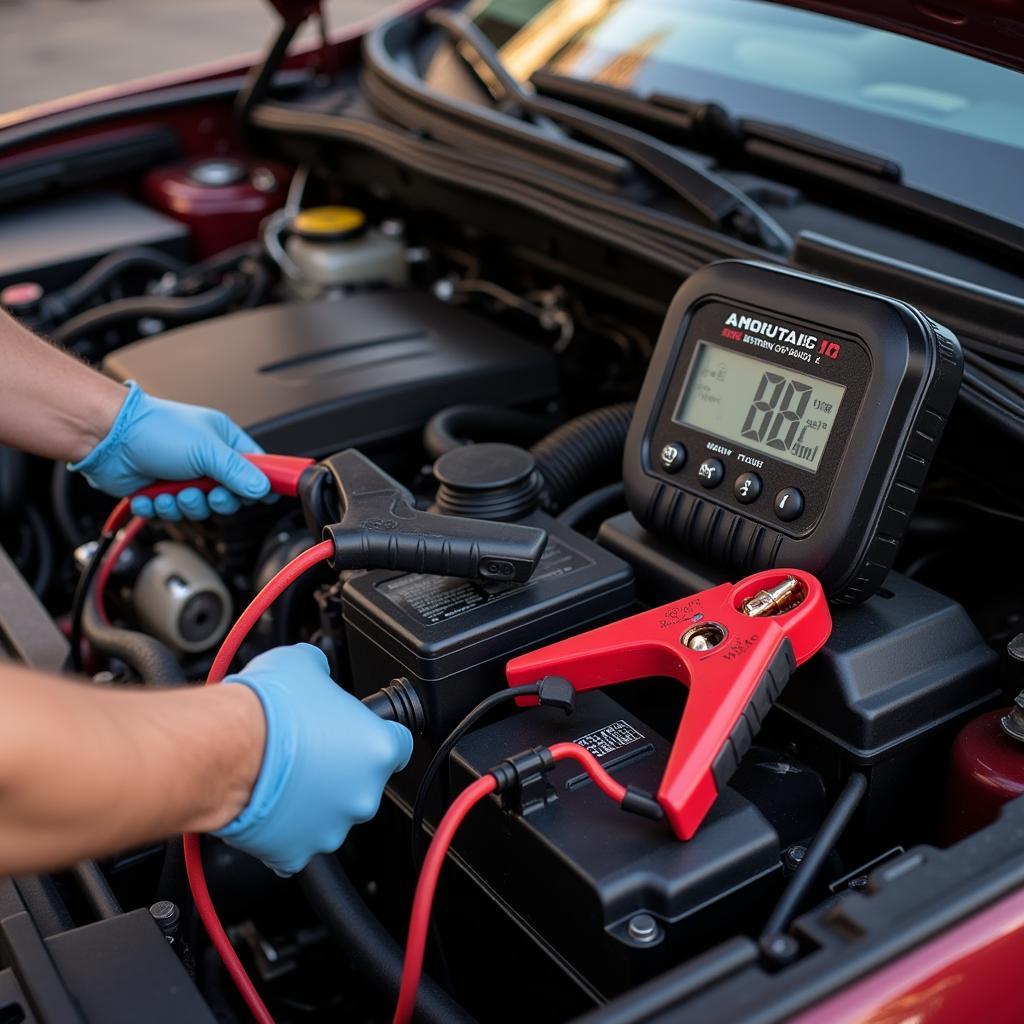Routine car maintenance is essential for keeping your vehicle running smoothly, safely, and efficiently. Knowing the basics of car maintenance can save you money on costly repairs down the road and extend the life of your car. This guide will cover the most important Routine Car Maintenance Everyone Needs To Know, from simple checks you can do yourself to more involved tasks best left to the professionals.
Maintaining your vehicle doesn’t have to be a daunting task. With a little knowledge and effort, you can keep your car in top shape and avoid unexpected breakdowns. We’ll cover everything from checking your fluids to understanding your car’s maintenance schedule. Ready to become a more informed car owner? Let’s dive in!
Essential Fluids: The Lifeblood of Your Car
Just like our bodies need water, your car relies on various fluids to function properly. Regular fluid checks are crucial for routine car maintenance everyone needs to know. Neglecting these checks can lead to serious damage and expensive repairs.
- Engine Oil: The most important fluid in your car. Check the oil level regularly using the dipstick. Low oil levels can cause severe engine damage.
- Coolant: Keeps your engine from overheating. Check the coolant level in the reservoir and top it off if needed.
- Brake Fluid: Essential for safe braking. Have your brake fluid checked regularly by a mechanic.
- Power Steering Fluid: Ensures smooth steering. Check the fluid level in the reservoir and add more if necessary.
- Windshield Washer Fluid: Keeps your windshield clean for optimal visibility. Refill the washer fluid reservoir regularly, especially during winter.
Remember, checking your car fluids regularly is a cornerstone of routine car maintenance. Don’t let it slip your mind!
Tire Maintenance: More Than Just Air
Tire maintenance is an often overlooked aspect of routine car maintenance everyone needs to know. Proper tire care ensures safe handling and optimal fuel efficiency. Beyond maintaining the correct pressure, regular rotation is also important.
- Tire Pressure: Check your tire pressure monthly using a gauge. Underinflated tires can decrease fuel economy and increase the risk of blowouts. Refer to your owner’s manual or the sticker on your driver’s side doorjamb for the recommended tire pressure.
- Tire Rotation: Rotate your tires every 5,000-7,500 miles to ensure even wear. This can extend the life of your tires and improve handling. You can learn more about car maintenance through resources like car maintenance manuals free.
- Tread Depth: Check your tire tread depth regularly using a penny. If you can see Lincoln’s head, it’s time for new tires.
Proper tire maintenance can improve your car’s safety, performance, and fuel efficiency.
Brakes: Stopping Power You Can Rely On
Brakes are obviously crucial for safety. While routine brake inspections should be handled by a qualified mechanic, understanding the signs of worn brakes is part of the routine car maintenance everyone needs to know.
- Squealing or Grinding Noises: These sounds can indicate worn brake pads.
- Vibration in the Brake Pedal: This can be a sign of warped rotors.
- Pulling to One Side When Braking: This could mean a problem with your brake calipers or brake lines.
If you experience any of these symptoms, have your brakes checked immediately by a mechanic. Consider learning more about kia car maintenance if you own a Kia vehicle.
Routine Car Maintenance: Staying Ahead of the Curve
Sticking to your car’s recommended maintenance schedule is vital for preventing major problems. This schedule outlines specific tasks, such as oil changes, filter replacements, and inspections, based on mileage or time intervals. You can often find this schedule in your owner’s manual. Is a car maintenance programs worth the cost? Often, yes.
“A well-maintained car is a happy car,” says John Smith, a certified automotive technician with over 20 years of experience. “Following the recommended maintenance schedule can significantly reduce the risk of unexpected breakdowns and costly repairs.”
Beyond the Basics: Other Important Maintenance Tasks
While the above covers the core aspects of routine car maintenance everyone needs to know, there are a few other essential tasks to keep in mind:
- Battery Maintenance: Clean the battery terminals periodically to prevent corrosion.
- Belt and Hose Inspections: Check belts and hoses for cracks or wear.
- Light Bulb Replacement: Replace burned-out light bulbs promptly.
Remember, taking care of your car through routine maintenance not only saves you money but also ensures a safer and more enjoyable driving experience. You can find a wealth of information in car maintenance and repair books.
Conclusion
Routine car maintenance everyone needs to know encompasses more than just oil changes. By staying proactive and incorporating these simple checks and tasks into your routine, you can keep your car running smoothly for years to come. This guide has covered the essential aspects of car maintenance, empowering you to take charge of your vehicle’s health. Remember, routine car maintenance is an investment in your safety and the longevity of your car. Need assistance? Connect with us at AutoTipPro for expert advice and support.
Call us at +1 (641) 206-8880 or visit our office at 500 N St Mary’s St, San Antonio, TX 78205, United States.
“Preventive maintenance is always cheaper than reactive repairs,” advises Jane Doe, a seasoned mechanic and automotive consultant. “Taking the time to address small issues before they become big problems can save you a lot of headaches and money in the long run.” You can also learn a lot from car preventive maintenance video.






Leave a Reply